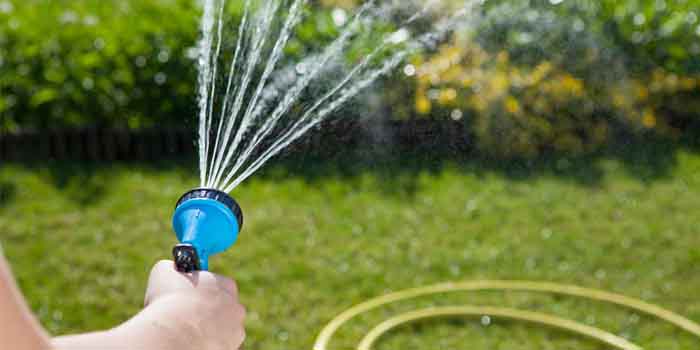
Conserving Water in Agriculture: Tech-Savvy Strategies
Share
In a world where water scarcity is becoming an ever-pressing concern, conserving water in agriculture has emerged as a crucial topic. With agriculture accounting for approximately 70% of global freshwater usage, there's a growing need to adopt innovative approaches to reduce water consumption in this sector. Tech professionals and enthusiasts are at the forefront of developing and implementing cutting-edge solutions that address this challenge.
The integration of technology with agriculture offers promising prospects for efficient water management. From smart irrigation systems to data-driven analytics, tech-savvy strategies are paving the way for a more sustainable future. In this article, we delve into the various technologies and methods that are transforming the agricultural landscape while conserving precious water resources.

The Role of Smart Irrigation Systems
Smart irrigation systems are one of the most impactful innovations in conserving water in agriculture. These systems use sensors and weather data to optimize water usage, ensuring that crops receive just the right amount of water they need. By minimizing water waste and enhancing irrigation efficiency, smart systems can significantly reduce the overall water footprint of agricultural operations.
For instance, IoT-based irrigation controllers allow farmers to remotely monitor and adjust water distribution based on real-time data. This not only conserves water but also improves crop yield and quality. By leveraging technology, farmers can make informed decisions that benefit both their bottom line and the environment.
Data-Driven Decision Making
Data analytics plays a pivotal role in modern agriculture, providing insights that drive more efficient water usage. By analyzing historical weather patterns, soil moisture levels, and crop water requirements, farmers can develop precise watering schedules that minimize waste. Advanced software solutions and machine learning models enable predictive analytics, allowing farmers to anticipate water needs and plan accordingly.
Tech professionals are developing sophisticated algorithms that factor in multiple variables, enabling a holistic approach to water management. With the right data at their fingertips, farmers can optimize resource allocation, reduce costs, and contribute to water conservation efforts.
Innovative Technologies for Water Recycling
Water recycling is another essential strategy for conserving water in agriculture. By reusing treated wastewater for irrigation, farmers can reduce dependence on freshwater sources. Technologies such as membrane filtration, ultraviolet disinfection, and advanced oxidation processes are being employed to treat and recycle agricultural runoff.
These technologies not only conserve water but also mitigate pollution and promote sustainable farming practices. Tech enthusiasts can explore the potential of water recycling systems to create closed-loop agricultural systems that minimize environmental impact.
Precision Agriculture and Drones
Precision agriculture, powered by drones and remote sensing technologies, is revolutionizing the way farmers manage their fields. Drones equipped with multispectral cameras provide aerial imagery that helps identify variations in crop health and soil moisture. This data enables targeted interventions, reducing water usage and improving overall farm productivity.
By adopting precision agriculture techniques, farmers can implement site-specific irrigation practices, ensuring that water is applied only where needed. This not only conserves water but also enhances the sustainability of agricultural operations.

FAQ
What is the importance of conserving water in agriculture?
Conserving water in agriculture is crucial for ensuring sustainable food production and preserving freshwater resources. With the growing demand for food and the increasing scarcity of water, efficient water management is essential to meet future challenges.
How can technology help in conserving water in agriculture?
Technology offers innovative solutions such as smart irrigation systems, data analytics, water recycling, and precision agriculture, all of which contribute to more efficient water usage and reduced waste in agriculture.
What are the benefits of using smart irrigation systems?
Smart irrigation systems optimize water usage by using sensors and real-time data to determine precise watering needs. This conserves water, reduces costs, and improves crop yield and quality.
For further insights into sustainable practices, you can explore articles like eco-friendly water solutions and calculating ROI for water-saving toilets. By embracing technological advancements, the agricultural sector can lead the way in water conservation, ensuring a better future for generations to come.
